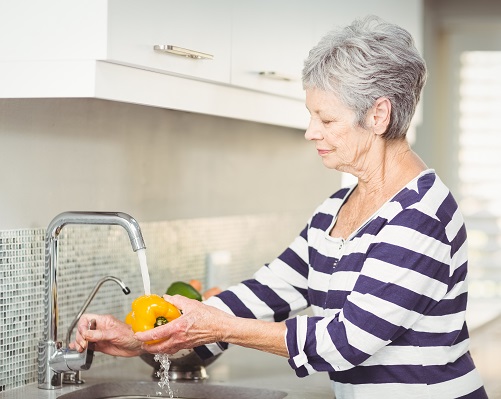
Your oxygen mask too: Why caregivers need to care for themselves first. Really.
Feel utterly and completely wiped out when your head hits the pillow at night? That's true for about one in five family caregivers, according to the Family Caregiving Alliance, many of whom feel they cannot shoulder it all.
Meanwhile a national survey found 21% of female caregivers had mammograms less often than recommended. What’s more, about 11% of caregivers say that caregiving has caused their physical health to get worse.
It doesn't have to be this way. The information in this section can help you to begin taking better care of yourself—so you can keep taking care of the people who depend on you.
Some highlights:
How to find the help you need so you can keep up with all the many parts of your life—without getting burned out
Why you shouldn't overlook your own health (and how to strike a livable balance as a caregiver)
Proven strategies for managing stress in productive ways.

Caregiver snapshot: "Caregiving just takes time"
Last year, Kristi Heruth, 60, quit her job to help care for her aging father. While her mom had been doing a great job on her own, the work was exhausting and isolating. Today, Heruth spends roughly eight hours a day with her parents, helping her dad dress and bathe, running errands, taking him to appointments, and spending quality time together as a family.
But while Heruth enjoys every minute she gets to spend with her parents, she understands how caregiving can easily take over someone’s life. “I would do anything for my parents, but I can see how that’s a problem,” Heruth says. “It just takes time.”
Community
Did you know that there are local agencies in every community to help you find the services you need?
Use the search feature, then input your zip code to find local help.
Two popular areas of need for caregivers:

